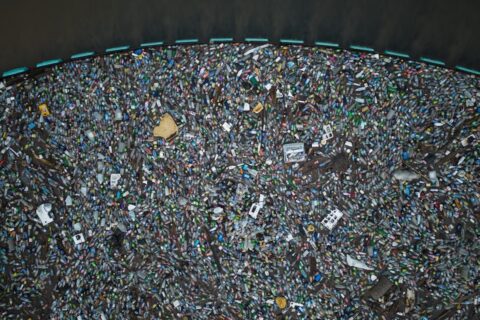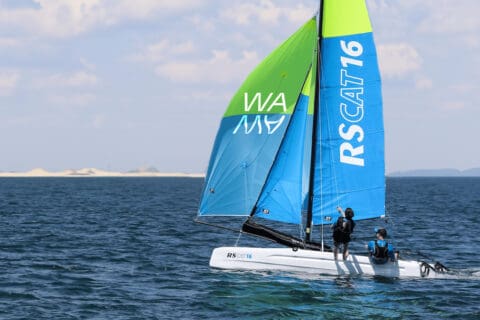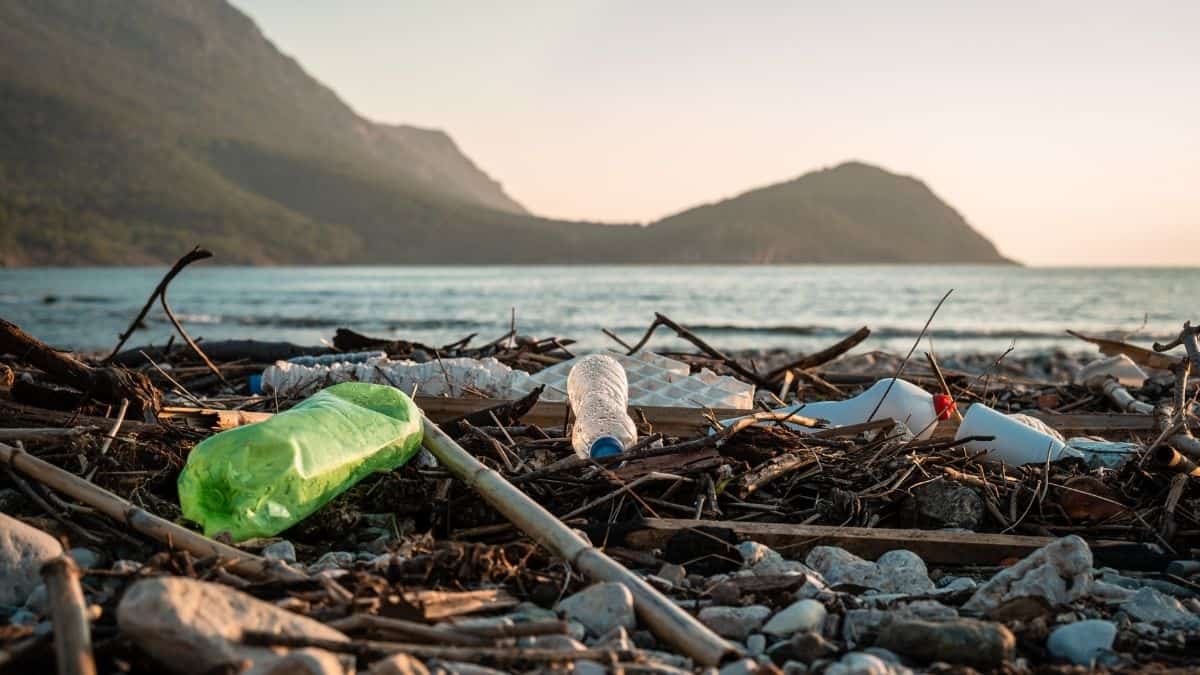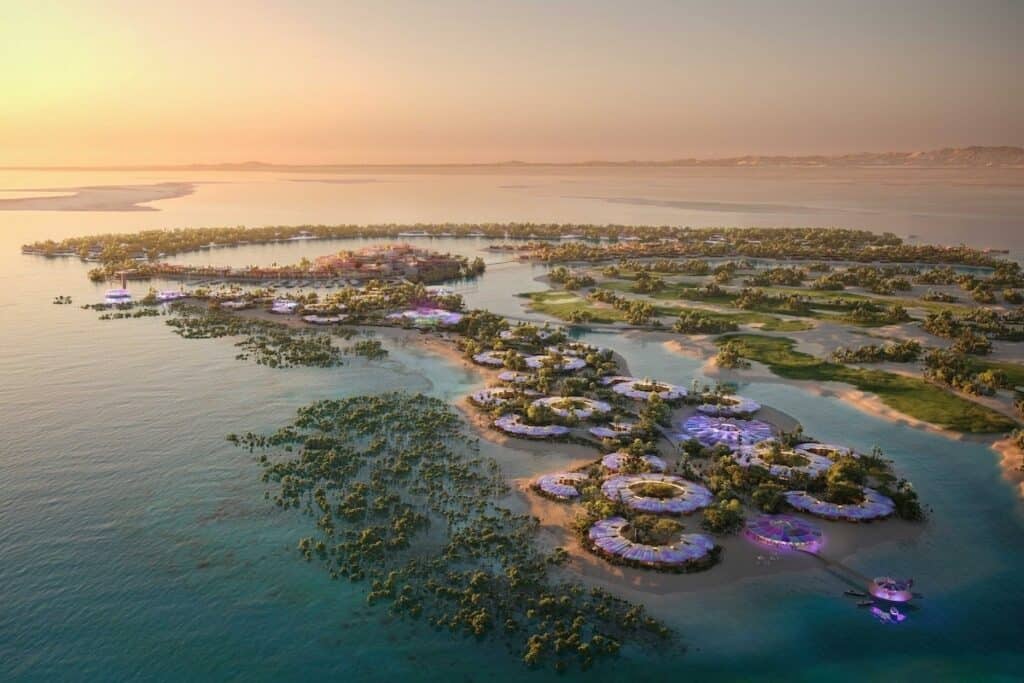
In this SustMeme Guest Post, Aradhana Khowala, CEO of Aptamind Partners and Chair of the Advisory Board at Red Sea Global, explores how a regenerative vision for tourism can help the industry move on from its recent history of ‘black swan’ events and longer-term legacy of environmental impacts, to become a beautiful ‘green swan’ itself.
AK: Tourism is a highly volatile industry. Prone to rapid market shifts, it is dependent on finite resources and a human workforce, at risk of technological disruptions, and in danger of suffering from natural disasters.
It is also at the mercy of unpredictable ‘black swan’ events like the COVID-19 pandemic which devastated the industry when international arrivals declined by 74% in 2020.
Yet, tourism remains one of the most resilient industries in the world.
It was unthinkable that two years on, international tourism would rise to 95% of the pre-pandemic highs of 2019. Tourism is back – but how can we truly build back better?
Time to transition to a new vision
Despite the buoyant outlook, the negative impacts of tourism are still substantial.
It is estimated that up to 11% of global greenhouse gas emissions are directly caused by the travel sector — with figure predicted to double by 2050.
Furthermore, each year, eight million tonnes of plastic end up in the world’s oceans — and are responsible for the deaths of up to one million seabirds, 100,000 sea mammals, marine turtles, and countless fish.
It is also estimated that, in some popular destinations, tourists produce up to twice as much waste as local residents and yet nearly 50% of World Heritage sites recognised by UNESCO were still found not to have management plans in place to prevent this.
These impacts make maters worse; and scientists have made it clear that we are on the verge of disaster.
There are many warnings — from melting glaciers to extreme weather events. By 2050, the rising sea levels and frequent flooding could endanger and submerge (entirely, or partly) 36 cities across the world, including some of the most visited tourist metropolitan such as New York, Tokyo, London, Jakarta and Istanbul.
It is time for the industry to transition to driving a regenerative tourism vision.
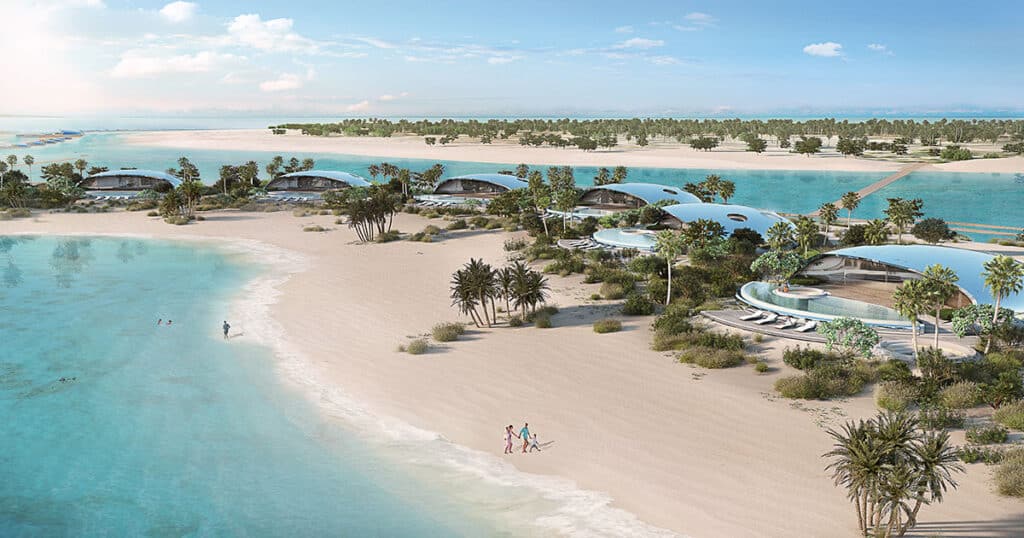
Shift from negatives, to positives
A regenerative tourism agenda will involve a fundamental shift in how we think about sustainability — moving away from a focus on reducing negative impacts, to creating positive ones.
It is a completely new paradigm that calls for a radical change to the way we do business, to our mindset, and to the behaviour of tourists in general.
Many tourists today aspire to have a carbon-neutral holiday. But regenerative tourism goes further than this, by calling for carbon-negative travel — where greenhouse gases are sucked out of the atmosphere, thus enhancing the environment, not just protecting it.
Whereas a sustainable destination strategy might focus on mitigating the negative impact on local resources, regenerative tourism builds for the community, serves the locals, and multiplies their gains.
Conscious travellers also want to buy authentic products and have local experiences; regenerative tourism calls for complete immersion, where tourist providers are valued as the main stakeholders.
Where sustainable tourism focuses on protecting biodiversity, regenerative tourism scales conservation efforts. It calls for a contribution to climate and biodiversity goals, solves water and food crises and ensures progress towards all 17 of the United Nations’ Sustainable Development Goals.
In addition, regenerative tourism doesn’t just offset carbon emissions or plant trees, but actively regenerates our soils, forests and oceans.
A regenerative tourism agenda empowers the disempowered across the value chain, collaborates with competitors and critics to address shared challenges and encourages guests to make their own positive changes, long after their holiday is over.
Examples worldwide, Africa to Oceana
Examples of regenerative tourism can be seen in different corners of the world.
In Europe, the Faroe Islands Tourism Board is developing a strategy for 2030, along with the locals, to ensure the territory becomes a fully regenerative tourism destination.
It’s also closed to tourists for two days per year so volunteers can help with preservation efforts.
New Zealand, in Oceana, the world’s most isolated land mass, announced plans to decarbonise tourism during the pandemic, restore landscapes damaged by footfall and incentivise electric vehicle usage.
Zanzibar, a tourist hotspot in Africa, is seeing its hospitality partners build a template for regenerative tourism, supported by plans from the Ministry of Tourism.
Organisations based in Saudi Arabia are taking a similar approach. Multi-project developer, Red Sea Global (RSG), has committed to achieving a 30% net conservation benefit by 2040.
From boosting coral populations and other biologically diverse habitats to developing a mangrove nursery to aid carbon sequestration, RSG is helping to enhance the environment surrounding its destinations — The Red Sea and AMAALA.
Swans of change, from black to green
Looking ahead, change is inevitable; and the swan has long been a symbol of transformation.
Only, unlike ‘black swans’, for which the sector cannot really prepare, the regenerative business practices that restore and build upon, rather than exploit and destroy the environment, can help the ugly duckling of tourism metamorphosize into a ‘green swan’.
It is still, however, no mean feat to implement a regenerative vision in tourism.
That ugly duckling will need time, effort, investment, innovation and collaboration to blossom into a beautiful green swan. And travelers, destinations and businesses will all have to actively repair, restore and invest in nature, together.
It is certainly a challenge — but then, whoever said change was going to be easy?

Aradhana Khowala is a global expert on the travel, tourism and hospitality industries. Her executive, entrepreneurial and board career spans over two decades, five continents and more than 75 countries. She is the CEO of Aptamind Partners, a private client advisory to governments and businesses, consulting on using tourism as a force for good. A sought-after Board Member, she has an active portfolio of roles both in private and listed companies, which includes being the Chair of the Red Sea Global Advisory Board in Saudi Arabia. Aradhana has participated in global policy discussions in United Nations bodies, the World Economic Forum as well as the G20 apart from all major tourism Summits. She studied at Ecole Hôtelière de Lausanne in Switzerland, Cornell University in the US and INSEAD in France.
Further Reading:
- More about private client advisory with expertise in tourism, Aptamind Partners;
- More on Red Sea Global (RSG); plus its destinations The Red Sea and AMAALA;
- Also on SustMeme, Nursery to help plant 50 million mangrove trees;
- Also on SustMeme, Leisure and tourism must race to revive our oceans (Guest Blog);
- Also on SustMeme, Sustainable luxury for first skyscraper in Greece;
- Also on SustMeme, Bike across the Baltic Sea on a solar-electric ferry;
- Also on SustMeme, Seawater harvesting for island hotspot in Baltic Sea.
You can check out the full archive of past Guest Blog posts here.
Would you like to Guest Blog for SustMeme? For more info, click here.
SUSTMEME: Get the Susty Story Straight!

